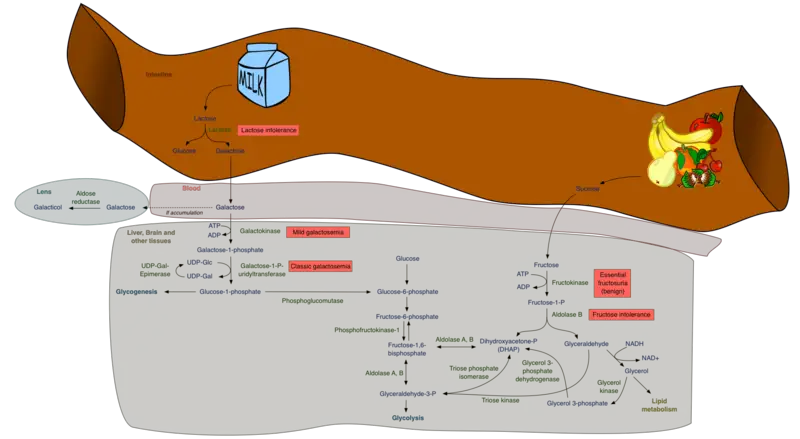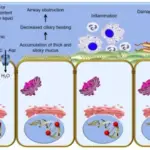Galactosemia is an autosomal recessive disorder of galactose metabolism that results in galactose-1-phosphate accumulation in tissues.
What is the Pathology of Galactosemia?
The pathology of galactosemia is:
–Etiology: The cause of galactosemia is mutations in genes that code for galactase and a deficiency of enzymes. That causes the sugar galactose to build up in the blood. It’s an inherited disorder, and parents can pass it down to their biological children. The parents are considered carriers of this disease.
–Genes involved: Mutations in the GALT, GALK1, and GALE genes
–Pathogenesis: The sequence of events that lead to galactosemia are due to an inability of nursing babies to metabolize galactose which is specific type of sugar that is found in milk. Galactose can not be broken down and digested, resulting in its builds up in the tissues and blood.
–Morphologic changes: The morphologic changes involved with galactosemia are abnormal accumulation of galactose-related chemicals in various organs of the body.
How does Galactosemia Present?
Patients with galactosemia typically are males and females equally. Galactosemia usually presents early in infancy. The symptoms, features, and clinical findings associated with galactosemia include cataracts, liver disease, kidney disease, delayed growth, and intellectual disability. Diarrhea and lethargy may also be early signs of galactosemia.
How is Galactosemia Diagnosed?
Galactosemia is diagnosed by genetic testing. Genetic tests for galactosemia can be performed on chorionic villus sample or amniotic fluid sample. Galactose-1-phosphate uridyltransferase test is a blood test that measures the level of a substance called GALT.
How is Galactosemia Treated?
Galactosemia is treated by a low-galactose diet, however it cannot be cured only managed.
What is the Prognosis of Galactosemia?
The prognosis of galactosemia is good if managed on time. The therapy of galactosemia is the lactose-free and galactose-poor diet for life. As a result of the nationwide newborn screening and the lifelong medical therapy, early treatment with galactosemia can achieve a normal life without serious complications.



